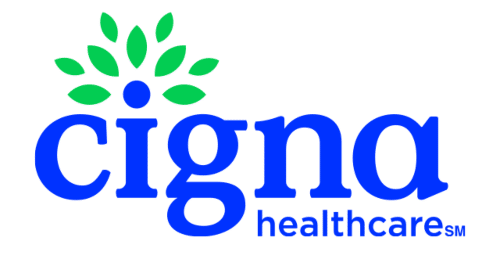According to statistics published by the National Institute on Drug Abuse, the relapse rate of people treated for substance use disorders hovers somewhere between 40 and 60%.
At first glance, these statistics can be pretty disheartening. And, this can be especially true for those trying to overcome their own personal addiction to drugs or alcohol.
But, don’t let the relapse after rehab rate statistics discourage you.
As often is the case when it comes to statistics, these don’t tell the whole story.
There are many additional factors (that aren’t always mentioned) that can impact your success in recovery.
Sure, 40 to 60% may seem like an overwhelming percentage. But, the National Institute on Drug Abuse goes on to admit that, despite the odds, addiction can be treated successfully.
Read on to learn more about relapse after rehab and find out how you can improve your chances of success!
Redefining Relapse
Typically, when someone relapses after treatment, it isn’t something that just happens out of the blue.
There are usually tell-tale relapse warning signs that signal when a relapse is about to occur.
Sometimes, someone may relapse after their second or third attempt at treatment. Then, relapse can be a good indicator that it’s time to look at what about their recovery strategy isn’t working.
According to many people who deal with addiction, both professionally and personally, relapse shouldn’t automatically equate to failure.
Sometimes, a relapse can be a major turning point for someone struggling with a substance abuse disorder. It can be an eye-opening experience that leads someone to take positive steps to get their lives back on track.
In fact, it’s not unusual for an addict to relapse several times before they’re able to understand what triggered their relapse. Then, they can learn how to respond to relapse triggers in a healthy(er) way.
For these reasons, it’s important that people struggling to overcome addiction don’t define relapse as a point of no return.
For many recovering addicts, addiction relapse is a crucial part of the recovery process.
Relapse can be the very thing that creates the “aha! moment” that helps people turn their lives around for good.
Reducing Relapse Rates: Factors to Consider
As mentioned earlier, the statistics that surround relapse after rehab may not tell the whole story.
Other factors can impact whether or not someone will relapse. Certain additional factors can increase the odds of one’s recovery (in a big way).
Let’s take a look at some of the things that can help to keep relapse at bay.
Has the Patient sought Professional Treatment for Their Addiction?
It’s no secret that recovering from addiction can be much more difficult for those who choose to go at it alone.
Many people who have recovered from addiction can remember when they decided that they had a drug or alcohol abuse problem. And, they’re also likely to remember equally well when they sought professional help in dealing with their addiction.
There is a reason that professional help is dubbed as ‘professional’. That’s because it tends to use proven methods and techniques for overcoming addiction and relapse prevention while also offering the addict a solid network of support.
Whether you enter a local treatment center or decide to attend a daily step program, there are options available that can help increase the odds of your success.
How Does the Type of Treatment Impact the Patient’s Success?
Today, there are many different types and levels of addiction treatment for patients to choose from. There is a wide continuum of inpatient and outpatient rehab programs. And, for those who are looking for an immediate solution, detox is a popular option.
Detox
During the often critical (and difficult) withdrawal period, many patients find it helpful to enter a short-term detox program. While these programs usually last only days, they are especially effective for patients who exhibit withdrawal symptoms after stopping drug or alcohol use.
Detox programs provide patients with medically supervised care to ensure that they are as safe and comfortable as possible while withdrawing from addictive substances.
Once a patient completes a detox program, they often enter either an intensive outpatient program or an inpatient treatment center.
Inpatient vs Outpatient Treatment
Surprisingly, perhaps, there is little evidence to support that inpatient treatment programs are superior to intensive outpatient treatment for addiction. In fact, the findings seem to suggest just the opposite.
The US National Library of Medicine National Institutes of Health published research claiming that both forms of treatment are practically equal in their effectiveness to overcome addiction. Both of these types of treatment have a successful track record in treating substance abuse.
While it may not matter which of these two types of treatment that you choose, it does matter that you choose either one or the other, this is because, even though both inpatient and intensive outpatient treatment has been deemed helpful in recovery, there’s one option that’s sure to end in disaster: choosing neither.
Life After Treatment
Success in recovery doesn’t end when you complete treatment. Recovery from addiction is often a lifelong process.
Some people may continue attending recovery-focused meetings after leaving treatment. Others may work with a personal counselor or therapist to help them learn to cope without drugs and alcohol.
It can also help to change your surroundings. You may need to find new places to spend your time and make new friends. This can be an important step to avoid things that could trigger a relapse.
Maintaining a healthy support system is vital to a successful recovery.
If you are willing to work consistently on your recovery, you can enjoy a full, happy life and kick your addiction for good.
Worried About Relapse After Rehab? Get the Help You Need to Be Successful in Recovery!
Are you concerned about relapse after rehab on a personal level?
Experts conclude that patients who have a network available to support their recovery efforts are often those who are most likely to achieve success.
If you’re afraid of relapsing after treatment, get the help you need to be successful today!
Stop worrying and take action to secure your success in recovery! Contact us today to find out how to plan a successful recovery after completing a treatment program!













